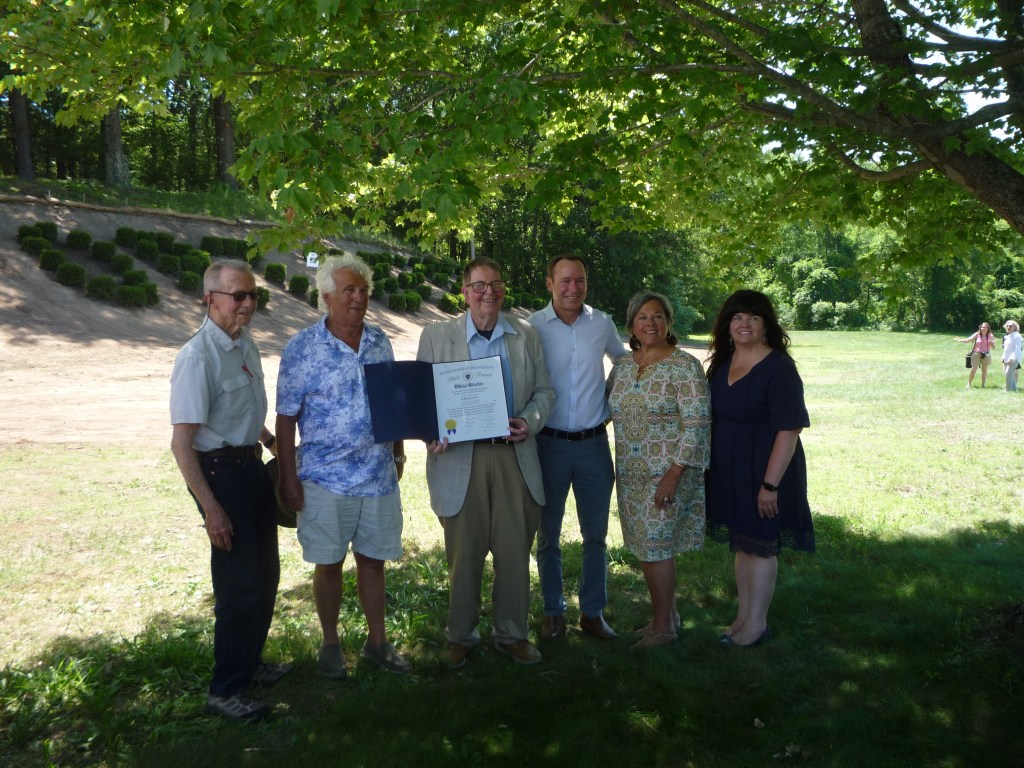In its three decades of operation, the Devens Enterprise Commission has played a major role in transforming the former Army base into an economic development dynamo.
The Devens Enterprise Zone as it’s now known is home to over 120 businesses employing more than 6,000 workers, as well as home to approximately 1,000 full-time residents. The businesses operate as part of the Devens eco-industrial park, which focuses on sustainable industrial development.
DEC continues to permit growth in industries such as biotechnology, health care, and advanced manufacturing, while prioritizing sustainable development, environmental stewardship, and community engagement.
As the one-stop permitting and regulatory board for Devens, DEC provides services of municipal boards such as planning, health and zoning, while also acting as its historic commission.
DEC works closely with MassDevelopment, a quasi-government agency, which took charge of Devens in 1996.
Repurposing the sprawling, 4,400-acre ex-military base also includes partnering with the stakeholder towns of Ayer, Harvard, and Shirley, whose borders exist within Devens. Representatives from those towns serve on DEC’s 12-member board.
And three decades in, the results of the ongoing redevelopment process are everywhere, particularly so along Jackson Road, still bustling with construction activity.
That’s also where DEC hosted its 30th birthday celebration on June 24, highlighting the central role it’s played in transforming the former Fort Devens, which closed in 1994, into a thriving civilian community.
The outdoor event drew almost 100 people, despite record heat that day.
DEC Director Neil Angus welcomed guests beneath the shaded shelter of a tall white tent.
Several speakers focused on Devens’ continuing success story.
Angus sketched DEC’s history. He said the commission first met on June 22, 1995, and since then has worked closely with MassDevelopment to create a ‘sustainable’ community that’s been internationally recognized.
“We didn’t do it alone …” Angus said, citing the redevelopment effort’s many participants, such as consultants, staff and commissioners. He thanked them all for their “selfless donations of time and expertise.”
Building a new Devens has been a “regional collaboration” among the towns, residents and businesses, Angus said, with strong support from state officials like state Sen. Jamie Eldridge and cooperation from Devens-based organizations and government agencies, such as the Federal Bureau of Prisons.
“We became a unified force” to re-do Devens after the base closed,” said DEC Chairman William Marshall, who’s been on board from the start. Marshall recalled the steering committee that formed then, with members from the towns of Ayer, Harvard, Shirley and at the time, Lancaster.
From that collaboration, the Devens Enterprise Zone was formed, Marshall said, within a framework spelled out in Mass General Laws, Chapter 498, enacted in 1993.
MassDevelopment, then called the Land Bank, was charged with base redevelopment, he said.
Describing DEC’s makeup, Marshall said its 12 commissioners included two representatives from each stakeholder town. Each member had to possess an expertise in related fields, he said, balancing “regulatory and local interests.”
Explaining DEC’s consolidated, one-stop permitting system, he said its zoning “as of right” formula streamlines the process to 75 days.
Lt. Col. Carlos Poventud-Estrada, commander of Devens Reserve Forces Training Area Garrison, reminded everyone that the Army hasn’t abandoned the base entirely. The reserve training facility carries on a long military tradition in “this historic site.” He also noted that DEC’s 30th birthday coincided with the Army’s 250th anniversary.
Over the years since it became a permanent base in 1937, he said the men and women who passed through Ft. Devens commanded their share of notoriety, including retired Army Gen. Colin Powell, the late former secretary of state and national security advisor who also served as chairman of the Joint Chiefs of Staff under President George H.W. Bush from 1989 to 1993.
Today’s Fort Devens is a more compact operation than its predecessor, but its mission continues. “Have no doubt, we are the U.S. Army in New England,” Poventud-Estrada said.
Introducing MassDevelopment President and CEO Navjeet Bal, Angus said the agency had been “a leader alongside us” in the redevelopment of Devens.
Bal mentioned Devens could play a key part in solving the state’s housing shortage. Citing a recent public report, she said repurposing its stock of existing buildings may help address this critical issue.
The MassDevelopment head was referring to the recommendations of the Devens Housing Working Group, which recently submitted its final report.
Established to develop strategies for increasing housing production on the former Army base, the panel focused on the feasibility of allowing up to 400 multi-family residential units.
The final report outlines the process, recommendations, and proposed zoning amendments to facilitate that goal.
The Working Group focused on strategies to promote housing in the 90-acre Innovation and Technology Center (ITC) zoning district, where housing isn’t currently allowed. Recommendations include amending zoning to permit a variety of housing types, including duplexes and townhomes.
DEC and its MassDevelopment partner have done a tremendous job in turning Devens into central Mass. business magnet.
One of its main missions in the months and years ahead will entail demonstrating that same drive to convince the three Devens towns of the need to complement that booming business environment with an expanded, thriving residential community.
